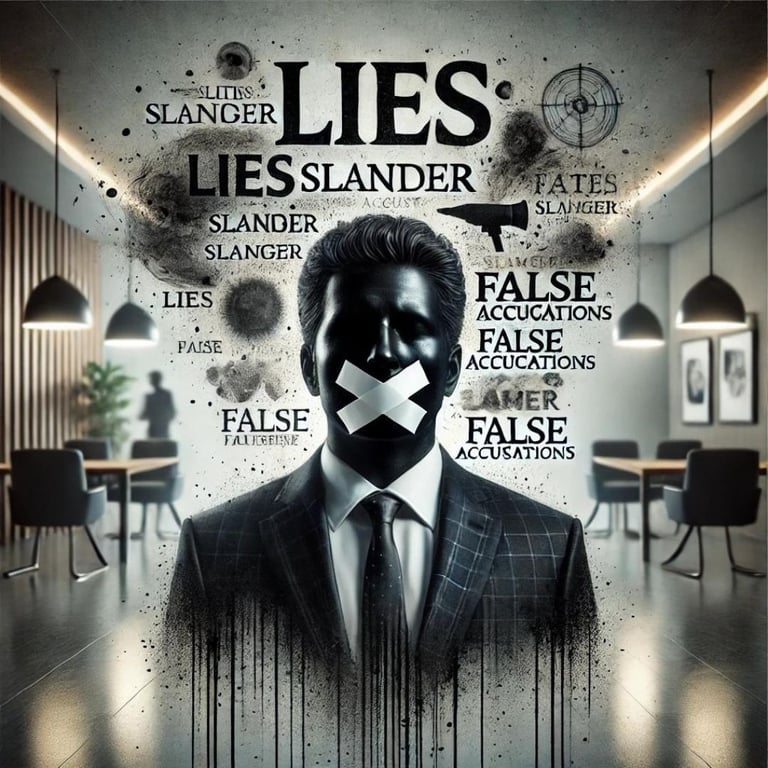Impact of social media on Defamation Laws
Nabanita Goswami
Durgapur Institute of Legal Studies, Durgapur
This blog is written by Nabanita Goswami, a Fourth-year law student of Durgapur Institute of Legal Studies, Durgapur


Introduction
‘Defamation’, as the name suggests, refers to the act in which untrue statements are made about someone that can hamper their reputation. Generally, these statements are based on false information and are circulated with the intent to harm a person’s reputation, decrease their respect in the society or prompt negative feelings against them. In India, defamation is a serious offence and is punishable under both criminal and civil law. In criminal law, defamation is defined in Section 499 of the Indian Penal Code, 1860 (now defined under section 356 of the Bharatiya Nyaya Sanhita, 2023) and punishable under Section 500 (section 356 of Bharatiya Nyaya Sanhita, 2023) with a simple imprisonment for a term of 2 years or fine or with both. While in civil law, a person who has been defamed can move to the competent jurisdiction having pecuniary jurisdiction and seek damages. A civil suit under Section 19 of Civil Procedure Code (CPC) either where the defendant resides or where the defamatory statement was made or published. [1]
Social media and defamation laws
In the modern era, social media has become an integral part of our lives. It has revolutionised the way how we communicate, share information and connect with each other. But as social media rose to its popularity it has posed various legal challenges like defamation, data breach, intellectual property infringement, etc.
In the digital era, social media has presented some particular challenges while responding to defamation. False information can spread quickly on social media platforms due to its speed and reach and ultimately cause irreversibly damage to a person’s reputation in a short period of time. [2] Some of the key challenges that social media poses include:
1. Determining the source of the misinformation as real identities and verifiable information are often missing on news, stories or blogs.
2. Limiting the damage is quite difficult as unlike traditional media defamatory content on social media spreads quickly to a large audience.
3. Content Monitoring is very challenging due to the availability of overwhelming amount of content online.
4. A lot of internet users are completely unaware of their obligations and legal rights.
5. Since Cyber Law is a fairly new discipline of law, it is very much difficult to enforce laws in cyberspace.
6. The current legal framework is very inefficient in addressing cyber defamation.
Key Legal Cases in India Involving Social Media and Defamation
1. Arvind Kejriwal v. State of Delhi and Another (2024) – in this case, Arvind Kejriwal reposted the URL of a video published by a popular Youtuber Dhruv Rathee where he has defamed The BJP It Cell. In this instance, the Delhi High Court declared that in cases of Cyber Defamation, every re-tweet/tweet of content that is defamatory would be on the same footing as the author of the tweet/post and would be tried under section 499 of IPC. [3]
2. Shreya Singhal V Union of India (2015) - In this case, the supreme court struck down the section 66A of The Information Technology Act, 2000 as it was violating the fundamental Right to Freedom of Speech and declared it unconstitutional. Section 66 A made it an offense to send offensive messages using a computer or other communication device. [4]
3. SMC Pneumatics (India) Pvt. Ltd. v. Jogesh Kwatra (2001) – In this case the Delhi High Court granted an ex – parte ad interim injunction restraint in which a displeased employee sent racially offensive, defamatory, obscene and disrespectful emails to the company’s fellow employers and subsidiary companies around the world with the motive to defame the company and its managing partner. [5]
4. Kalandi Charan Lenka v. State of Odisha (2016) – in this instant, the court held liable the culprit for defaming the petitioner by stalking and creating a fraudulent account in her name and sending vulgar texts to her friends. The culprit also morphed a naked picture of the victim and posted on the wall of the hostel where the victim stayed. The Orissa High Court held that the accused’s actions were constituting cyber defamation. [6]
Conclusion
Since the surge in the use of internet and social media, more people have begun to express their viewpoints about a wide range of topics and obstacles. Social media has started a revolution not just in India but everywhere in the world. Platforms like Instagram, X, Facebook, Threads, etc. are being used extensively by people of various spheres. Even though these platforms have been a blessing for intelligent and perspective people, it has also brought us cyber defamation bullied who defame others online. Strict actions should be taken against those individuals who engage in such activities. Laws specific to social media defamation should be enacted by our legislature and proper authorities should be created to oversee such matters. Internet users should be made aware of Do’s and Don’ts on social media platforms so that they don’t defame any person unconsciously. Social media companies like Meta should also be hold accountable during the investigation of any defamation matter.
References
[1] Litigation Service, ‘Defamation’ (2023) < https://www.indialawoffices.com/knowledge-centre/defamation#:~:text=In%20Civil%20Defamation%2C%20a%20person,Defamatory%20statement%20was%20made%2Fpublished.> (accessed September 4, 2024)
[2] SRM University (SRMUH), ‘Legal Implications Of Social Media: Navigating Online Defamation And Privacy Rights’ (2023) < https://srmuniversity.ac.in/blog/best-university-for-law-in-sonepat/ .> (accessed September 4, 2024)
[3] Lakshay Sharma, ‘Now Retweets might land you in Trouble: What the Recent Delhi HC Judgment on Online Defamation means’ (2024) <https://www.ijlt.in/post/now-retweets-might-land-you-in-trouble-what-the-recent-delhi-hc-judgment-on-online-defamation-means#:~:text=Abstract,a%20cherished%20and%20beloved%20right> (accessed on September 5, 2024)
[4] IIPR, ‘Defamation in the Digital Age: Navigating Social Media, Blogs, and Legal Consequences’ (2024) <https://www.iiprd.com/defamation-in-the-digital-age-navigating-social-media-blogs-and-legal-consequences/> (accessed on September 5, 2024)
[5] Ananya08, ‘Elucidation of Cyber Defamation: A Critical Dilemma in Cyberspace’ <https://www.legalserviceindia.com/legal/article-6149-elucidation-of-cyber-defamation-a-critical-dilemma-in-cyberspace.html> (accessed on September 6, 2024)
[6]Aarshi0597, ‘Social Media and Online Defamation’ <https://www.legalserviceindia.com/legal/article-1818-social-media-and-online-defamation.html> (accessed on September 5, 2024)
